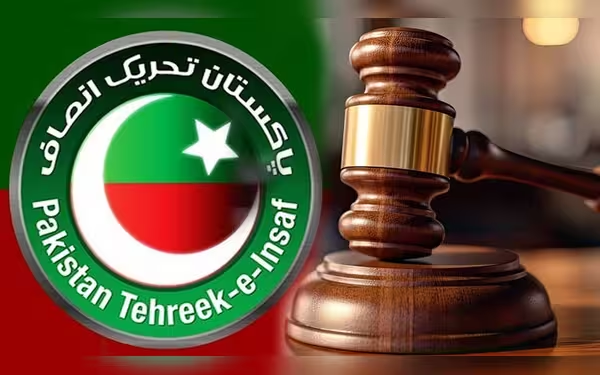Saturday, November 16, 2024 05:38 PM
PTI Challenges Detention Orders in Lahore High Court
- PTI contests detention orders in Lahore High Court.
- Legal action follows planned rally in Lahore.
- Court's decision may impact political activities.
 Image Credits: thefrontierpost
Image Credits: thefrontierpostPTI challenges detention orders in Lahore High Court ahead of a planned rally, raising concerns over democratic rights and public order.
In recent developments, the Pakistan Tehreek-e-Insaf (PTI) party has taken a significant step by challenging the detention orders of its leaders in the Lahore High Court. This legal move comes just ahead of a planned rally in Lahore, which has stirred considerable attention and debate among political circles and the general public alike.
The petition was filed by PTI leader Zainab Umair, represented by Advocate Azhar Siddique. It names the Punjab government and the Deputy Commissioner as respondents. The crux of the petition revolves around the fact that the PTI had already secured a No Objection Certificate (NOC) from the administration for the rally. This NOC is a crucial document that allows political parties to hold public gatherings without legal hindrances.
Despite the issuance of the NOC, the Deputy Commissioner took the controversial step of issuing detention orders against PTI leaders and activists. The petition argues that these orders are not only unwarranted but also represent an illegal misuse of authority by the Deputy Commissioner. It further claims that such actions are intended to instill fear among the public, thereby undermining the democratic process.
The PTI's legal team has requested the court to nullify these detention orders immediately, emphasizing the importance of upholding democratic rights and freedoms. The situation raises critical questions about the balance between maintaining public order and allowing political expression. In a democratic society, the right to assemble and express political views is fundamental, and any attempt to curtail these rights can lead to significant public unrest.
As the Lahore High Court prepares to hear this case, the outcome could have far-reaching implications for political activities in Pakistan. It serves as a reminder of the ongoing tensions between political parties and government authorities, particularly in an environment where political dissent is often met with resistance. The public will be watching closely, as the court's decision may set a precedent for how similar cases are handled in the future.
The challenge to the detention orders by PTI not only highlights the party's commitment to its political agenda but also underscores the importance of judicial oversight in matters of civil liberties. As citizens, it is essential to remain informed and engaged in these developments, as they shape the political landscape of the country and influence the democratic rights of all individuals.













